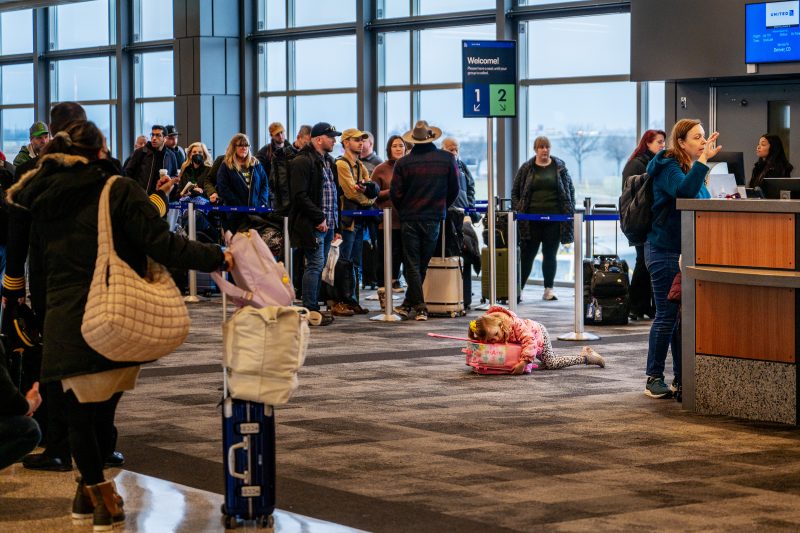The U.S. air travel infrastructure has recently gone through a major disruption due to the cancellation of more than 1,400 flights across the country. This shocking number is accompanied by announcements of delays for thousands more, marking a significant challenge for passengers, airlines, and other stakeholders involved in the aviation industry.
One of the major factors contributing to the large number of cancellations and delays is the unpredictable and often harsh weather conditions. Severe storms, coupled with icy conditions in some parts of the U.S., have made it hazardous for flights to take off and land. In the interest of safety, aviation authorities have been compelled to cancel flights to minimize risks and protect passengers.
Additionally, another underlying issue that has aggravated the situation is the workforce shortages being experienced by airlines. The global pandemic has affected the aviation industry significantly, leading to reduced operations and staff layoffs. With fewer people available to manage all operations from aircraft maintenance to air control, airlines find themselves struggling to keep up with the rigors of their schedules.
Cancellations and delays do not only disrupt the operations of airlines, but they also greatly inconvenience passengers. Travel plans, business meetings, family gatherings, and vacation itineraries have to be changed or canceled, which can often result in significant personal cost, not to mention the emotional stress and disappointment experienced by travelers. Airlines, therefore, have to bear the brunt of these disruptions, dealing with passenger complaints, processing refunds, and rebooking travelers on other flights.
It’s important to note that during such disruptions, the airlines are obligated to take care of their passengers. According to DOT regulations, airlines are required to offer passengers who get stranded due to cancellations food, accommodation, and transportation to booked hotels. In addition to this, the airline has the responsibility to either refund the passenger for the ticket price or to make arrangements for the next available flight for the passenger.
In a move to mitigate the current situation, airlines are working round the clock to manage the crisis. This includes hiring temporary staff and extending working hours for current employees. Airlines are also collaborating with meteorologists to obtain accurate and timely weather forecasts.
To help alleviate the impact of such flight disruptions on passengers, technology has also played its part. Airline apps and websites have started providing up-to-date flight status information, offering digital boarding passes and facilitating easy rebooking options, which have become paramount during this period.
Despite the widespread impact, the current scenario is also a crucial learning stage for both aviation authorities and airlines. They will need to devise better strategies and infuse more substantial resilience into their systems, to successfully handle extreme circumstances like these in the future.
In the meantime, passengers are advised to keep a close eye on their flight’s status, stay in contact with their airline’s customer service, and remain flexible in adjusting their plans if necessary. Whilst it is undoubtedly a frustrating situation, remembering that the ultimate objective is the safety of all passengers may provide some comfort to those affected by these significant disruptions.




